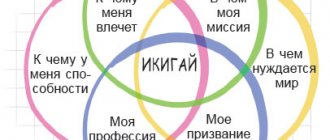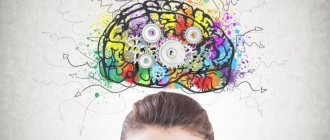Intuition allows you to instantly find a solution without having sufficient information for logical analysis. The brain suggests information that it cannot know, but still knows 
Plato believed that humans have two types of thinking: logical and intuitive. The left hemisphere controls logic, while the right hemisphere controls creative thinking and intuition.
The right hemisphere instantly processes incoming information from the senses. It is there that emotions are formed and connections between objects and events are discovered. Intuitive thinking is a feeling, not a knowledge, because a person cannot explain logically why he made the decision he did.
Only 3% of people have strong intuition, and most often these are creative people.
Check your level of intuition: can you trust your own instinct or is it better for you to follow logic and the voice of reason?
We prepared 6 images where we painted over objects or took photographs in black and white. The correct answers will be immediately below the tasks. For each correct answer, award yourself 1 point, and then read the results.
results
- 0 points . In ordinary life, you rely on logic and look for patterns. But this is not a reason to be upset, because prudence and operating with facts, and not speculation, makes your conclusions thorough, and they should be trusted no less than highly developed intuition.
- 1-2 points . In moments of danger, you can feel something is wrong. You could return plane tickets or change the route at the last moment - as it turns out later, not in vain.
- 3-4 points . You predict events well, you can feel approaching troubles not only for yourself, but also for your loved ones. You are often visited by brilliant ideas and inspiration.
- 5-6 points . Your intuition is very highly developed. You can go straight to the “Battle of Psychics”. Trust your instinct more often, it will not let you down.
Share in the comments how many points did you score? 
Do you have any interesting stories where your intuition helped you?
Intuition test
Author of the material:
Svetlana Smyshlyak
philologist, writer, lyric poet
What is intuition? It turns out that they understand it differently. Some believe that this is a sixth sense, an almost paranormal sense that defies the laws of logic. Others are sure that this is the result of experience gained, taken from personal practice, literature, cinema, and social stereotypes. Others recognize it as instinct or just insight. An intuition test will help you understand how developed this spontaneous, unpredictable instinct is and what to do with it.
1. Do you understand well the emotions of strangers when talking to them, even if they try to hide them?
2. How often in school, college or university did you guess the correct answers to test tests, although you did not know the given topic?
3. Has this ever happened to you? that you just looked at your phone, which suddenly started ringing a minute later?
4. When you wake up in the morning, do you immediately feel how and in what mood your day will go?
5. How often do people around you ask you for advice and turn to you for help?
6. Has it ever happened to you that you took with you something completely unnecessary and usually left at home, but suddenly an urgent need for it appeared?
7. Do you consider yourself a person who knows how to learn from past mistakes and skillfully use acquired experience?
8. How sensitive are you in life?
9. Do you consider yourself a very lucky person in life?
10. How often do words and predictions that you say casually, not seriously, rather as a joke or by mistake, come true?
11. If you lose something, can you quickly find it using your inner intuitive feeling?
12. Have you ever had a situation where, due to a strong negative feeling, you canceled fairly serious plans for the day or even longer?
13. How often do you act spontaneously and still get good results?
14. Do you believe in horoscopes, clairvoyance, fortune telling, palmistry, rituals, omens and similar esoteric procedures and phenomena?
15. Would you risk investing the rest of your salary in a lottery/casino if you had a strong feeling that you would definitely win?
16. How often do you have unreasonable fears, fears, anxiety, and as a result, troubles actually happen?
17. Do you often finish other people's sentences?
18. Is your first impression of a new person usually correct?
19. Do you have prophetic dreams that accurately predict certain situations or give you the feeling that something is about to happen?
20. How often do you hear surprised and enthusiastic phrases addressed to you like “How do you know!?”, “Do you read my mind?”, “You were right!”?
Articles on wikiGrowth.ru about: What is intuition How to develop intuition Human abilities Empathy test Subconscious
Additional Information:
- Test: what is my psychological age?
- Test: emotional intelligence EQ
- Sense of humor test
- Selfishness test
- Friendship test
- Empathy test
Example: which of them became a famous actor?
Here is an example from the test, there are 2 photos of people taken many years ago, and you need to FEEL which of them eventually became a world famous actor.
You can look at their faces and focus on some stereotypes that will pop up in your head. And this is a sure path to failure, to the wrong answer. In this way you will definitely be deceived.
In order to get a truthful answer, you need to focus on your feelings and sensations. 1 of these people is a world famous actor. That is, there is now an energy of fame and popularity around him. He has great charisma and influence in the future.
And if we tune our instinct to this fame, some light and glory around a person. Then around one of them we can feel a certain density, the energy of fame. But around another person, if you tune in to him through a photo now, there won’t be such energy.
And by tuning into these sensations and making decisions based on such sensations, you can get closer to the correct answer. And such an answer will not be based on inventing or guessing.
What is intuition
The phenomenon of automatic decision making has not yet been fully studied by science.
In psychology, the term intuition means making a spontaneous, correct decision that is not justified by logical conclusions.
It is believed that intuition is closely related to such aspects as:
- Inspiration and emotional uplift;
- Template thinking;
- Existing knowledge and experience gained throughout life.
Also, well-developed intuition is equated with extrasensory abilities, in which a person predicts upcoming events or understands people very well without even communicating with them.
Algorithm for turning on your intuition:
1. Clear your consciousness of all thoughts, get the state of an empty head2. Turn on your senses, sharpen your senses. Start to receive sensations from the outside world, feel objects around. Try to feel the energies of the world, people, and the energy of objects around you.3. Tune in to the objects in the photographs and try to feel which answer is correct. For each question, it is important to first understand exactly what we need to tune in to, what sensations we are trying to capture. In the case of an actor, this will be a certain energy of fame.
Application in everyday life
A person with well-developed intuition receives the following benefits:
- Spends less time analyzing information and finding the right solution. It comes as an insight, and often has no logical proof.
- Draws preliminary conclusions, the correctness of which is only confirmed over time.
- He understands people well: he can predict their behavior in a given situation, easily reads their emotional state, and quickly recognizes lies.
- Predicts future events.
Psychologists believe that this feeling can and should be developed. But first of all, it is worth determining the initial potential. By answering a few simple questions, you will understand how developed your intuition is at the moment, and whether you can already rely on your sixth sense.
Question: Which Grandmother would you entrust your child to?
Does it ever happen that you need to urgently run away somewhere, and, for example, leave your child under supervision?
There are 2 heads in the photo. Which one inspires you more confidence?
One of them, responsible and respectable, will do everything that is asked. The other is a maniacal killer, whom you definitely shouldn’t even approach.
Will your instinct be able to recognize who is who? We will give you the correct answer at the end of this page. Be sure to read to the end!
Online test
To learn to understand yourself, as well as your intuition, you should make some efforts, understand how it works, how to “decipher” its signals, and most importantly, listen to them in time. It happens that under the influence of stress, in a hurry or under pressure, a person does the opposite - but in the end he realizes that he intuitively wanted to do something differently. Sometimes we refuse to listen to ourselves, follow the intended plan - and as a result we find ourselves in unpleasant situations. If you learn to listen to your instincts, you can avoid many mistakes.
The test will tell you how to understand how developed your intuition is and whether it is worth training. Answer the questions provided by choosing one of three options:
- Often – 3 points;
- Sometimes – 2 points;
- Never – 1 point;
Author's exercises for developing intuition
After passing our test, you can sign up for our newsletter on the last page. In our letters we will send you answers to the test questions so that you can test yourself.
We will also analyze in detail each question of this test, and what exactly you need to tune in to get the correct answer. We will also send you our best original exercises, which in a short time will allow you to upgrade your Intuition and learn to hear the voice of your Subconscious. Important! When you meet a person, and if you need to make a choice, learn to listen to yourself. Learn to turn on this instinct more often. The more you pay attention to this quality, this function - instinct, the more active it will become in you.
By paying attention to your Flair, you give signals to your brain and subconscious to activate this function, your intuition. The more you rely on your Flair and pay attention to it, the more you will activate it.
A little about two types of thinking and the REI test
Of course, like the other opposites given above, the opposition between a rational or an intuitive type of thinking is quite arbitrary
.
Depending on the situation, a person can use both types: listen to intuition or weigh the pros and cons using pure logic. However, for many, one of these two styles is dominant: if, all other things being equal, reason says one thing and intuition says another, what will this or that person choose?
The differences between the two types of thinking have also attracted psychologists. So, Epstein’s Rational-Intuitive Questionnaire
(or Epstein) – Rational-Experiential Inventory. It is also REI or REI-40 (based on the number of questions). The test allows you to determine which of the two types is in the lead, and also shows how highly a person rates his intuitive and analytical abilities. Sometimes REI is used by HR specialists when selecting candidates. This test is also interesting from the point of view of self-diagnosis.
At the same time, Seymour Epstein himself did not say that a person uses only one of two systems of perception - analytical-rational and intuitive. On the contrary, according to his theory, these systems work in parallel and constantly interact
, allowing us to make decisions and find answers to emerging questions most quickly and efficiently.
What is Intuition and how does it work?
Intuition is a certain feeling of the right answer that arises within us.
We can say that Intuition is a property of our Psyche (energy) that allows us to feel the world. To feel out the people with whom we communicate, to get some sensations from the person, his intentions, his mood. This is a certain Flair.
And such a sense can be compared to a certain “echo-locator” inside us. You can imagine that our Psyche has a kind of energy “Probe” or “Tentacle”. We seem to immerse him in a person, in a situation. This is the outside.
You just get a feeling inside yourself. We listen to ourselves, to the sensations that arise as a result of such “feeling”. Some people pay attention to this, some people just don't pay attention. There are people who have this ability active. That is, we can say that they have this “tentacle” activated. Such people can train themselves to listen to the sensations that arise within themselves.
But they can also ignore this feeling and then say to themselves, well, I knew that I should have done something differently. That's what I felt.









